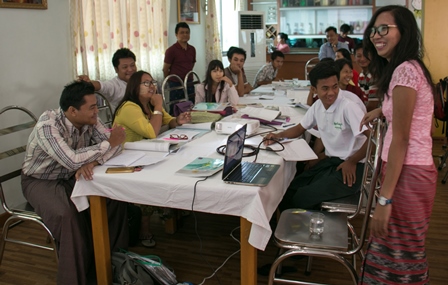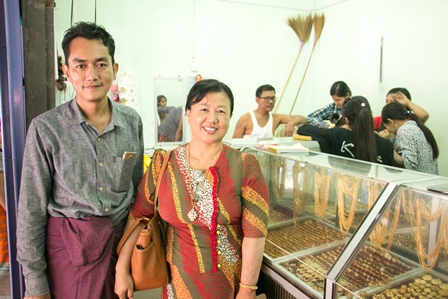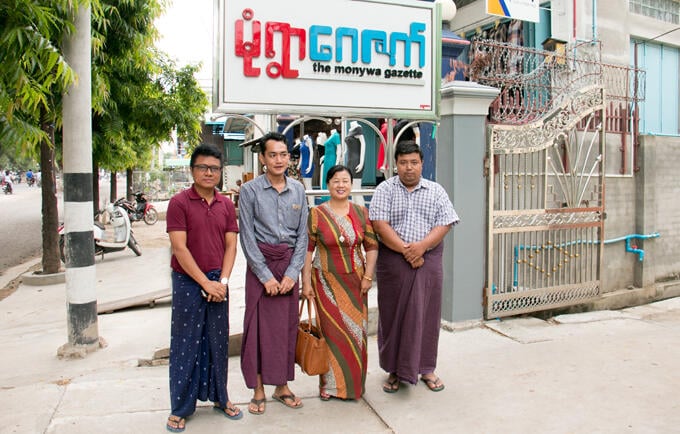Monywa, Myanmar – In the wake of media reforms in Myanmar, the weekly newspaper Monywa Gazette is one of the many small local start-ups. The political and economic transition in Myanmar has paved way for scores of new private media outlets both nationally and locally. These play a crucial role in a society that is on route towards democracy. Part of the independent media’s job is to inform the public about things that need to change, and also about who is responsible for making the change happen.
An essential body of information is available in the 2014 Myanmar Population and Housing Census, which was conducted by the Government of Myanmar with financial and technical support from UNFPA, the United Nations Population Fund. The census results provide politicians and civil servants with the data needed to make informed, fact-based, decisions for healthcare, education and infrastructure developments. Of course, decisions also need to be informed by public opinion, including opposing views, carried through independent media.
“Our newspaper is the watchdog in the Sagaing region”

“The Monywa Gazette is the watchdog in the Sagaing region. We follow what the politicians do and don’t do, and we tell our readers about it”, says the newspaper’s publisher Ko Lay. He continues:
“We also publish stories to start a debate about issues that are not already on the agenda. Census data is incredibly useful for this. For example, we could see in the Sagaing region census report that a huge number of households use firewood for cooking. At the same time, our region suffers from dangerous deforestation. So we wrote a story that put two and two together. To help stop deforestation, we called for local authorities to give people incentives to use other sources of fuel for cooking.”
“People need news to understand the world”

The Monywa Gazette has found a way to use census data to find the stories behind the data, to stimulate an open public debate, and to push decision makers for action. But much of the media outlets in Myanmar still don’t have the capacity to probe hundreds of pages of data, and to analyse these to uncover compelling facts as well as the scoops. Decades of isolation and lack of training means a steep learning curve for Myanmar journalists and publishers.
To enable media to play its part in the public debate, UNFPA and UNESCO are training over 100 journalists across Myanmar in the art of data journalism. The initiative includes newspapers, online media, radio and TV stations that serve Myanmar’s ethnic minorities in their local languages. But lack of skills in not the only challenge for the media start-ups. Many of them are struggling financially. Although the Monywa Gazette has a loyal readership 2,000 readers, it has been operating at loss since it was founded last year. Publisher Ko Lay subsidizes the newspaper with the income from his other business: a modest jewellery shop at the local market. The newspaper’s chief financial officer Daw Yin Yin Kyi, who is married to Ko Lay, also contributes from her day job salary: she is a physics professor at the Monywa University.
“Journalism is a passion”, the couple says. “We can’t earn a living from it, but we have to do it anyway. We are proud of the Monywa Gazette, and for the role it plays as a watchdog of both the local government and private interests. People need news to understand the world”.


